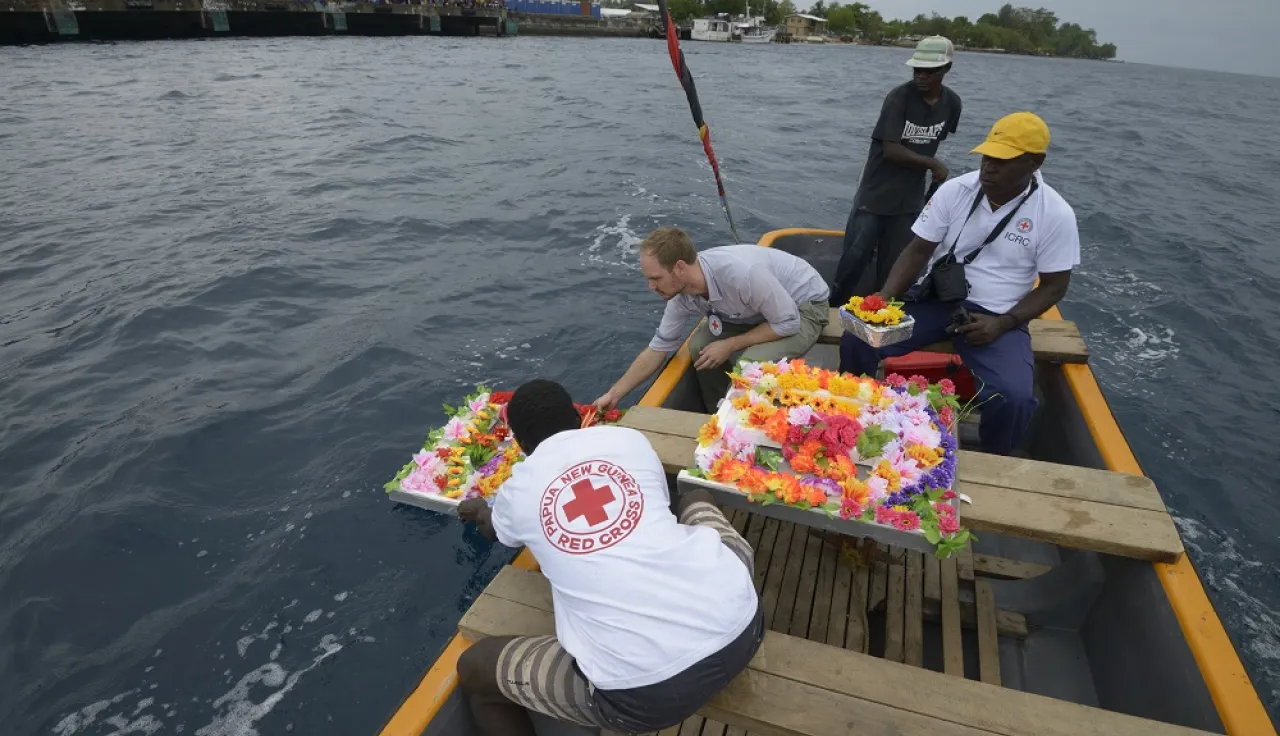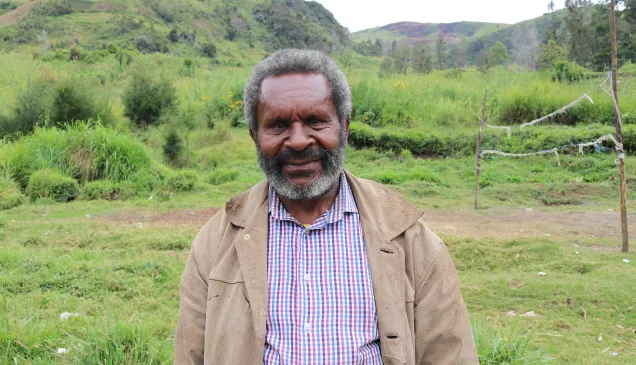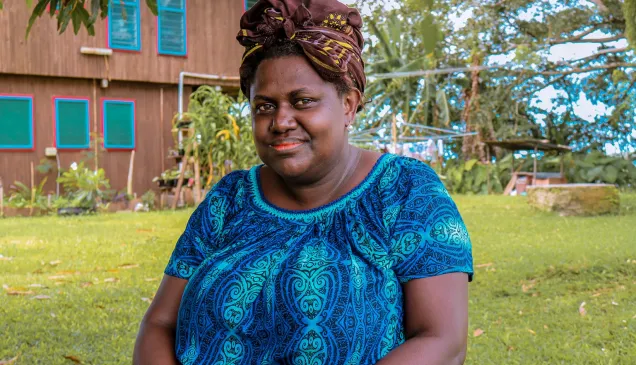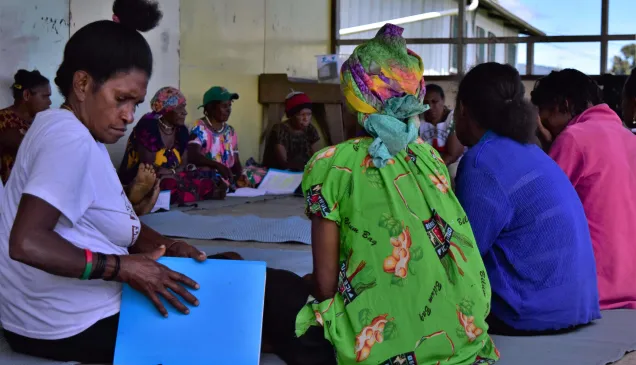Papua New Guinea: Moving forward in the search for Bougainville's missing

The 1989-1997 civil war in Bougainville, Papua New Guinea left up to 20,000 people dead. Many of those who vanished at the outbreak of violence are still unaccounted for and their loved ones are left without knowledge of their fate.
The ICRC works closely with the authorities in the Autonomous Region of Bougainville (ARoB) along with organizations, including the Papua New Guinea Red Cross Society, to clarify the fate and whereabouts of missing persons. Tobias Koehler is an outgoing delegate from the ICRC Arawa office. As his time in Bougainville comes to a close, Tobias shares with us his thoughts on the progress on the issue of missing persons in ARoB.
Although it has been over 20 years since the end of the Bougainville conflict, many people remain missing. What kind of impact does this have on the loved ones of those whose fates are unknown?
The impact is very tangible. Once people are willing to open up and share their story, many are quickly overwhelmed by the power of their own emotions. Most people suffer psychologically, often silently and with the feeling of being trapped because it is difficult and painful to relay to others that you are still suffering. Sitting with them, listening and seeing their reactions first hand really brought home the point for me that the issue of the missing is so particular. The type of loss experienced is just so difficult to grasp. Many people also strongly feel that the remains of their loved ones need to be returned to their land so that the living are not disturbed by the spirits of the dead. Bringing these spirits to rest also opens up possibilities for reconciliation between the relatives of those who suffered the loss and the perpetrators, thus making room for peace.
The International Day of the Disappeared on 30 August each year has become a significant, annual commemoration for the people of Bougainville. How is this day marked on the island?
Bougainvilleans marked the day for the first time in 2014 with activities in Arawa. Seeing this multiplication of efforts and an ever increasing number of families coming forward to make their voices heard was fantastic to see. There were a number of ceremonies, and it seems to me that they were really meaningful for family members of missing persons. These events are emotionally exhausting for relatives, but at the same time are a good forum for releasing some of the pain held inside. What is most remarkable is the courage people have shown in organizing and joining the activities, holding placards with photos of their loved ones, singing songs and getting on stage to share their story and grief. The issue is highly sensitive; engaging with it in public fora is still something new.
What were some of the highlights of your time in Bougainville?
The highlights of the work on missing persons were the events, in particular the remembrance ceremonies organized by the families. Participating in those was very motivating and moving. Of course, helping the Autonomous Bougainville Government (ABG) draft, negotiate and then adopt an official policy on this important topic was also a milestone. All in all, the overall progress on the issue of the missing and the cooperation by all stakeholders was a highlight for me.
Can you tell us a little bit more about the official policy – what does it mean for those seeking to clarify the fate of their loved ones?
The policy is the first acknowledgment of the ABG that there is an ongoing problem of missing persons, which is a great step. Policies, in general, steer the work of governmental departments and make it possible for the government to attach funding. The government thus seizes responsibility for the issue and does so by treating it as a humanitarian issue. This means it is clear that whatever information is collected in this process is used only to help locate, identify, and return remains of missing persons to their loved ones. Anything related to criminal responsibility or even compensation is excluded from the policy. It also provides some basic definitions, calls on the ICRC to provide advice and support throughout the process and lays out a rough road-map of how to go about the next steps.
Families of missing persons are explicitly mentioned in the policy. They are treated as central stakeholders in the process; rightly so as it is mostly them suffering from the issue. This is important because other stakeholders (such as government departments, armed forces and ex-combatants) need the perspectives of these families to inform a meaningful policy and subsequent process. Many relatives feel that this policy gives them a voice that can be heard by their government. It empowers them to come forward, not feel ashamed and to proactively try to resolve this problem.
Finally, what do you see as being the most important step forward on the issue of the Bougainville missing?
There is widespread political support for this work, as well as a (yet to be adopted) policy from the government of Papua New Guinea that complements the one from the ABG. The next step is to define exactly how remains of missing persons can be located, identified and returned to their families. All stakeholders will need to meet and agree on a process for this to happen. The ICRC will surely be able to provide technical guidance and make suggestions when needed. While it will still take many years and certainly not all missing persons in Bougainville will be found, the results of the process can hopefully help relatives cope with the pain they feel and bring peace to communities that have been waiting for decades.
Watch video on Bougainville's missing



